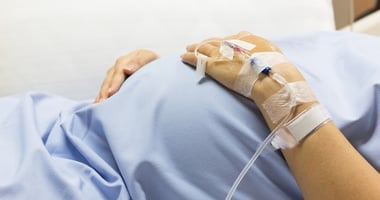People with a history of severe infection such as hepatitis or sepsis may be more likely to develop...
Bacterial Infection in Pregnancy Linked to Psychosis in Offspring as Adults
 |
The risk of psychosis in adulthood is even greater when pregnant women have an infection that impacts multiple body systems such as sepsis and is especially high for males.
Lead author Younga H. Lee, Ph.D., of Brown University and colleagues said more research with larger sample sizes could help uncover how gestational bacterial infection may directly or indirectly cause adult psychosis. “If replicated, our findings would also call for public health and clinical efforts that focus on preventing and managing bacterial infection in pregnant women,” they wrote.
Lee and colleagues analyzed data on 15,421 live births between 1959 and 1966 in Boston and Providence, R.I., as part of the Collaborative Perinatal Project (now known as the New England Family Study). Information about exposure to bacterial infection was recorded during perinatal visits beginning at the time of registration for prenatal care, at intervals of four weeks during the first seven months of pregnancy, every two weeks at 8 months, and every week thereafter until birth.
Of 15,421 cohort mothers in the sample, 3,499 (23%) had bacterial infection; of these, 3,191 (21%) had localized infections, 399 (3%) had multisystemic infections, and 91 (<1%) had both. Localized bacterial infections included tuberculosis (n=8); pneumonia (n=83); syphilis (n=66); gonorrhea (n=15); and kidney, ureter, and bladder infections (n=1,203); and vaginitis (N=2,136).
A total of 116 offspring were diagnosed with a psychotic disorder in adulthood.
Offspring of mothers who experienced a multisystemic infection were almost three times as likely to have a psychotic disorder in adulthood compared with those whose mothers experienced no infection. Offspring of mothers who had any kind of infection during pregnancy—localized or multisystemic—were 1.8 times as likely to have a psychotic disorder as those whose mothers had no infection.
The risk was especially high for males; male offspring of mothers who experienced a multisystemic infection during pregnancy had a five times greater risk of psychosis than males whose mothers did not have infection, and nearly three times the risk of psychosis when mothers had had any kind of bacterial infection.
A large body of research has implicated viral infections during pregnancy in psychosis among offspring; the new AJP study extends that work to bacterial infections. “These findings could be an important first step to motivating large-scale national register-based investigation” of the role of both viral and bacterial infections in psychosis, the researchers wrote.
For related information, see the Psychiatric News article “Maternal Infection, Later Childhood Infection Linked to Psychosis in Offspring.”
(Image: pio3/Shutterstock)
Follow Psychiatric News on Twitter!
And check out the new Psychiatric News Brief on Alexa-enabled devices.
And check out the new Psychiatric News Brief on Alexa-enabled devices.





